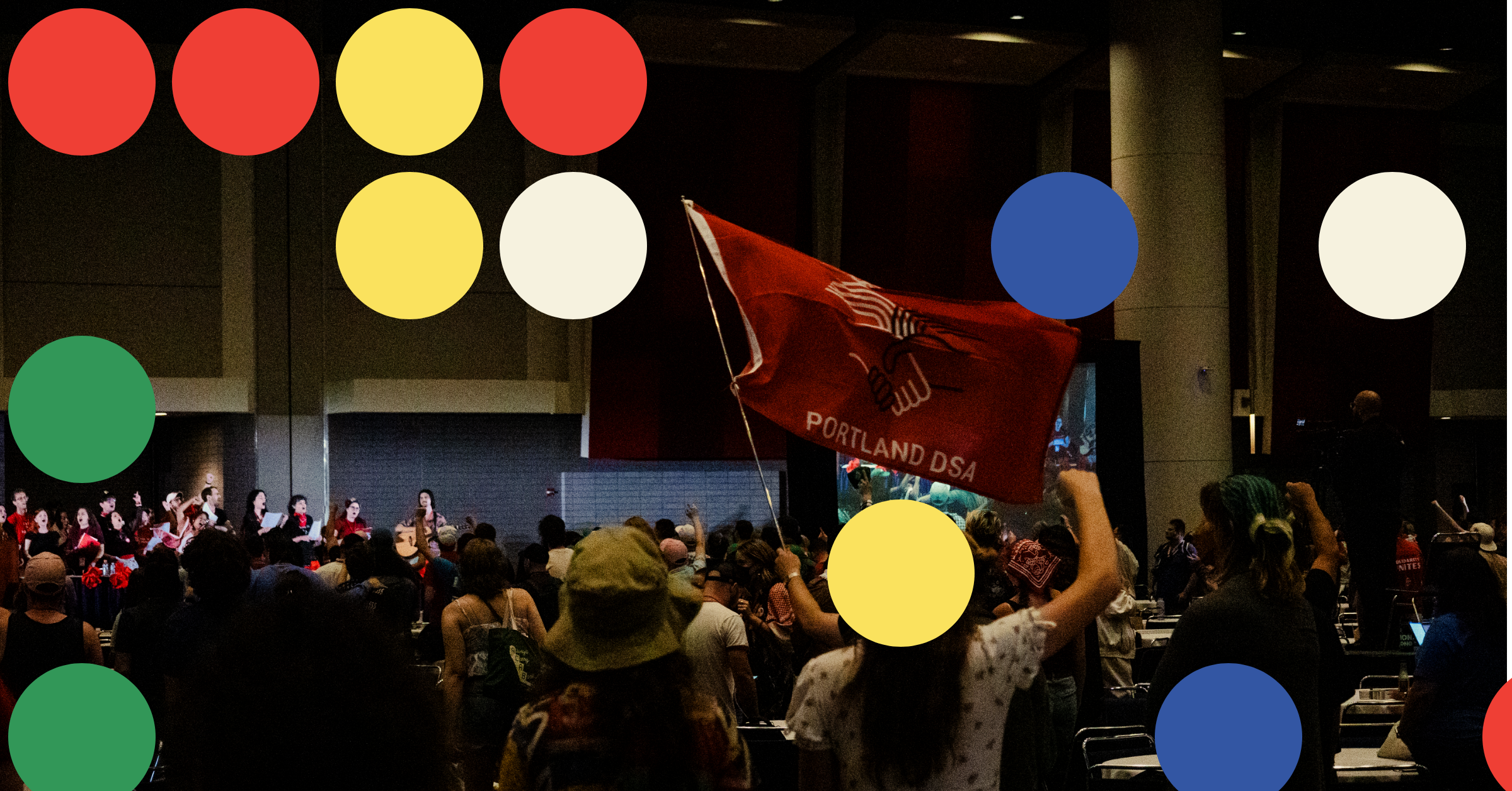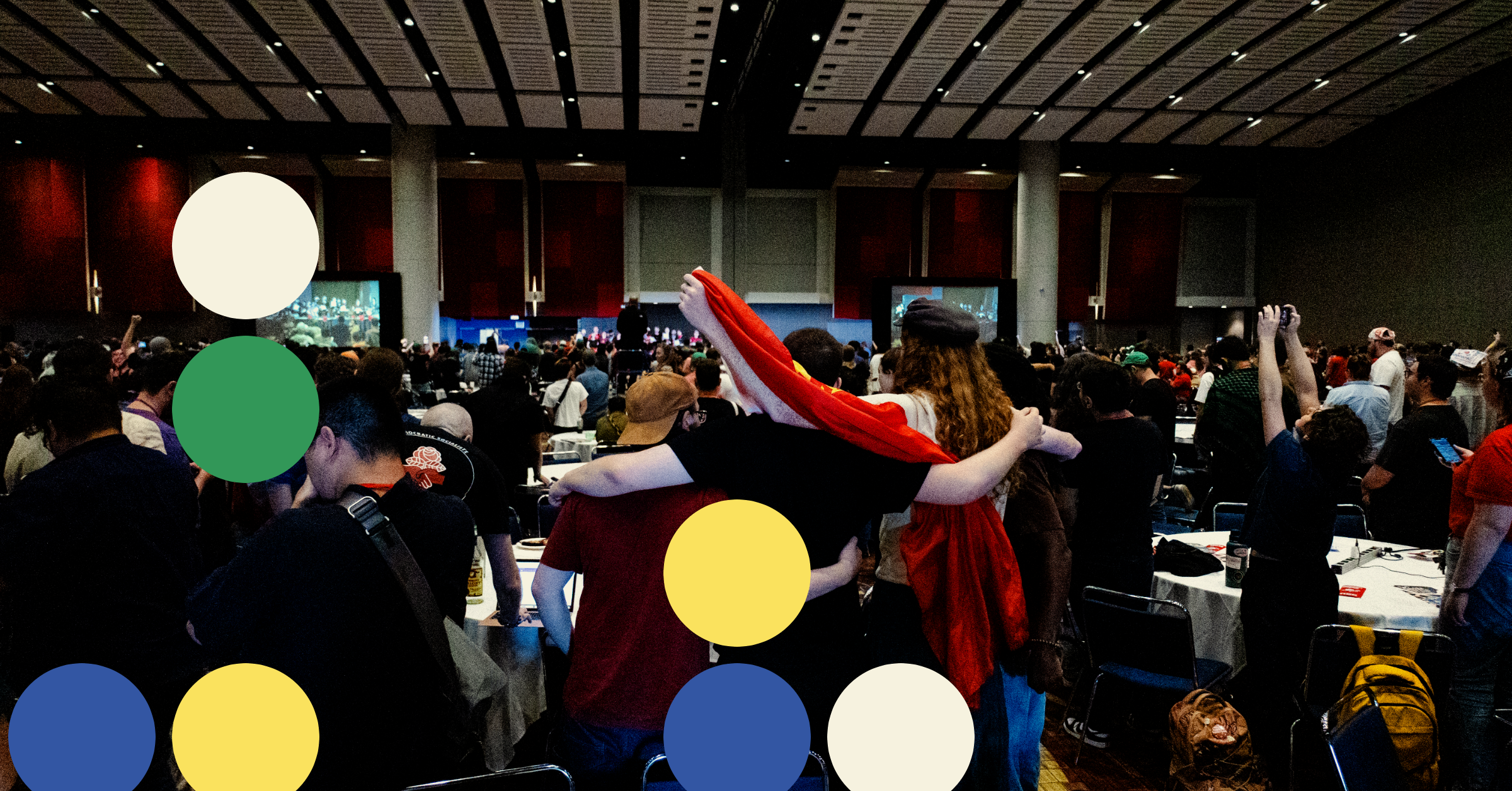At the Democratic Socialists of America Convention this summer, members will have the opportunity to direct the next National Political Committee to prioritize stipends and paid full-time positions for national DSA and YDSA leadership. If we are going to have any chance of scaling up our organizing to meet the current moment of crisis and opportunity, we must empower our nationally elected leaders to focus fully on their duties through stipends and salaries. The vast majority of work in DSA will always be done by volunteers (this has always been our most powerful secret weapon) but enabling our elected leaders to enact the will of the membership in more than just their scant free time will pay dividends for our capacity to build DSA and the socialist movement.
I come at this from personal experience. In my time as co-chair of the National Labor Commission, I have tried my very hardest to lead bold campaigns and support member self-activity while keeping the wheels of the NLC turning. I have had weeks where I logged into a DSA call every weeknight after work and long weekends where I had to use my vacation days to do my DSA job. I’m proud of the work DSA Labor is doing, but I know that if I had been able to focus on it full time we would have more active members leading projects they cared about. I am not planning to run for re-election, but I don’t feel right asking anyone else to do what I did over the past two years. Our organization is mature enough and financially stable enough to level up to the kind of paid leadership that political movements in other parts of the world already utilize.
Paid Leadership for DSA Labor
In 2023, I attended the DSA Convention as a delegate and as the recently appointed interim co-chair of the National Labor Commission. Our steering committee had conducted a months-long drafting process of a Consensus Resolution that had wide support but also several amendments. One amendment would have stripped out language from our resolution calling for two full-time paid NLC co-chairs in the coming term. At the time, I was too nervous to speak. It felt wrong for me to essentially campaign for myself to get a salary for the work that those who had come before me had always done for free. I took the financial concerns put forward by the amendment drafters seriously. Luckily, others spoke passionately about the need for our movement to be led in its day-to-day work by elected members empowered with the time to execute on an ambitious program.
The amendment failed and the consensus resolution passed. It was only after the convention had concluded and our newly elected NPC members were briefed on the realities of our financial trajectory that we realized how precarious our paid leadership mandate was. The process of fielding candidates for NLC co-chair was suddenly very complicated. Candidates needed to be willing to leave their current job if money was found to fund the convention’s mandate, but also be willing to do the arduous role while also holding a separate full time job if it was not. Unsurprisingly, the election was uncontested and I was one of the suckers who stepped up. As the budget fight ensued, I half-heartedly fought a losing battle to pay NLC co-chairs without raiding our Solidarity Fund to do it.
In short, we were in a very dicey financial situation and had to make significant sacrifices to right the ship. As of today, the organization has been in a state of consistent growth for over six months and experienced a significant membership surge thanks to the success of the Zohran Mamdani campaign in New York City. While we must be emotionally and financially prepared for this boom to at some point be followed by a bust, the lessons we’ve learned over the past few years will help us better weather future storms.
Why Paid Leadership?
National leaders can’t truly lead if they all only have the limited hours before and after work to do so. There are simply too many different ongoing projects with dedicated meetings and tasks, too many chapters to wrangle, and too many reminders to follow up on.
At the 2023 convention, we passed a resolution to make the elected national co-chairs paid full-time positions. We were able to carry out this mandate in spite of our financial situation. I believe that having paid national co-chairs has been a huge success (despite my candidate of choice not being elected). I have seen both co-chairs take on an expanded leadership role by visiting chapters, attending important events and meetings across the organization, and representing DSA in the media. It follows that more people with more time to commit will expand our ability to actually follow through on the commitments made at our conventions. Meanwhile, I see many of our unpaid national leaders either burning themselves out or abdicating their responsibilities when the responsibilities prove too taxing.
Paid political leadership is not a novel idea. The practice is common in most major unions. Political organizations in parts of the world that have a more developed socialist movement often pay member-leaders to perform duties for a period before being re-absorbed into the rank and file of the organization. For example, the Socialism and Liberty Party (PSOL) in Brazil pays its political leadership while taking great pains to make sure these members do not become an entrenched bureaucracy.
I know there are members who think that for the money (though relatively low for dues) they put into DSA they should be seeing more visible action and organizing coming out of the national organization. While I am a firm believer that much of our most important work happens on the local level, I can understand the frustration at feeling like national leaders could be doing more, for lack of a better word, leading. Paid political leadership will be more visible to members and the broader public than our current combination of “apolitical” staff and volunteer leaders. I also think that paid leaders will feel more empowered to go to members in between conventions, determine how we should respond to opportunities and crises as they arise, and ultimately put into action bold strategies for meeting the moment.
Facilitating Rank-and-File Participation
In 2023, my biggest concern was that the creation of paid co-chairs for the NLC would essentially box out anyone who was a rank-and-file worker from the position. I’ve moved on this, mostly because I’ve come to believe that anyone doing the rank and file strategy should be primarily committed to that task and it’s our job as a movement to scaffold their involvement in DSA. That means encouraging them to participate in national committees in a way that provides flexibility for periods when they need to step back. We can accomplish that just fine with a handful of paid roles to enact a strategic vision determined by rank-and-filers’ participation in DSA.
I think my current NLC co-chair Ryan can attest to the serious challenges of being a rank-and-file activist and unpaid national leader. He is a teacher in Los Angeles so he is unreachable during the school day and during union meetings. I never doubt Ryan’s commitment to the socialist movement, but it has become a running joke on the body that he will always be attending the meeting via his phone in LA traffic. We need the perspective of busy rank-and-file workers on the NLC, but I don’t think he would have agreed to take on the sheer amount of work that being a co-chair entails if it hadn’t been advertised at the time as something he could take a couple years off from teaching to commit to full time.
Working Alongside Union Staff
First of all, I’m all for hiring more administrative staff. As we grow, there is a need to expand our operations and I trust the incoming NPC to shepherd along the process of filling holes and building capacity. But unelected staff run into roadblocks when projects require political decisions — especially when questions of approach are not universally agreed upon by the membership. This leads to a lot of bottlenecks in which work can’t move forward until a volunteer leader can carve out time to make it happen.
I have learned during my time as co-chair that in a political organization there is actually a very limited amount of work that could truly be considered apolitical. Decisions from “which list do we send this to?” to “how much time should be spent on each priority campaign” have political judgments baked in. Paid elected leaders could trust the mandate of the membership when they determine how to spend their time. If they make bad decisions or fall out of line with members’ political priorities, the membership would have the ability to replace them.
We need paid elected leaders representing us in coalition meetings that (all too often) occur during business hours. It should be our elected leaders that represent us at important events like the inaugural Emergency Worker Organizing Committee conference, the Socialism Conference, and the May Day Strong Coalition Labor Day planning retreat. Those events falling all in a row shouldn’t put member leaders in the position of having to use all of their vacation days at a job they already feel guilty about taking so much time away from (as happened to me this summer).
Some have argued against paid political leadership on the grounds that it would lessen the bargaining unit work of the staff union. This is not a concern that I share. As a union staffer, I am a big proponent of my union expanding member participation in our leadership through stipends and paid positions. In a democratic, member-led political organization like DSA (or a union), the aggressive protection of bargaining unit work that we whole-heartedly embrace in dealing with capitalists cannot be applied as is without severely inhibiting not only our democratic principles but our ability to build our organization’s power. This framework also just doesn’t gel with the nature of DSA as an organization where the vast majority of work is done by volunteer organizers across the country who put in untold hours of labor into running their chapters, carrying out priority campaigns, and participating on national bodies. There is plenty of work to go around.
Socialists Must Lead
I don’t want to ask someone else to take on what I have done over the last two years unpaid. I don’t want to ask someone to spend every evening leading organizing calls after a full day of work. During my time as NLC Co-Chair, I have supported the union members I work with on six separate strikes. During those high pressure periods, I felt guilty for not spending one hundred percent of my time on my union work and guilty for being distracted from my duties to DSA. I don’t regret it, but I can’t ask someone else to take that on. It’s not sustainable.
Whether you think I did a great job or a lousy one, the work I have been able to do as NLC co-chair has been constrained by the limited time I had to commit to the project. I am proud of what the NLC has accomplished in the past two years through our Amazon and Labor for an Arms Embargo campaigns, our Workers Organizing Workers training series, and our ongoing solidarity work. I’m sure that my fellow national leaders on the NPC and National Coordinating Committee of YDSA all have their own stories of the sacrifices they have had to make and the things they would have done with more time.
If you’re a convention delegate, I urge you to vote yes on Resolution 35: For Working Class Member Leadership. The reality is that the work we will need to do in the next two years will be larger scale, higher stakes, and more time intensive than anything we’ve done before. The next stage of our project will require our political leaders to be able to devote their full attention to our project so that we can all do great things together.




